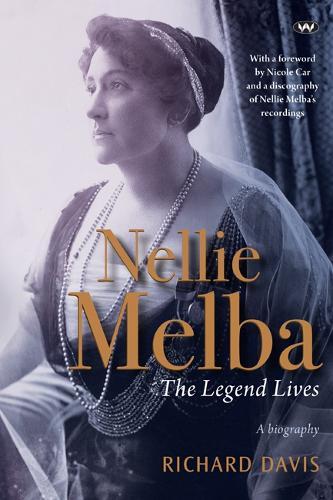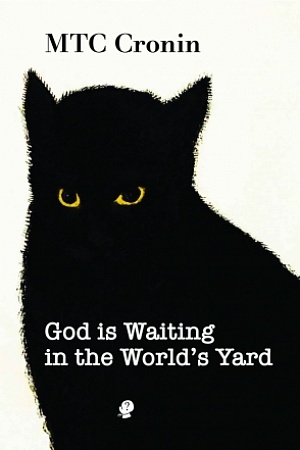Shanghai Dancing
Giramondo, $29.95 pb, 447 pp
No Promised Land
If we lived in the kind of country – and there are some – where people not only chose their presidents but chose as leaders poets, philosophers and novelists, a new novel by Brian Castro would be a sensation, even a political event. Students would be hawking pirated copies, queues would form outside bookshops, long debates would steam up the coffee shops, and the magazines would be full of it. Alas, China and Australia from the 1930s to the 1960s, where Castro takes us in memory, were not such places then any more than they are now.
Australia has received several serves from Castro in the past for not being that kind of country. In an elegant little book of essays, Looking for Estrellita (1999), he wrote about a gathering of the world’s top writers in Atlanta, Georgia, an ‘intellectual Olympics’ that included eight winners of the Nobel Prize for Literature. Australia, he implied, is not a member of that intellectual or artistic league: it does not put great value on intellectual production. In Asia, he warned, to be modest about your collective intellect is to be taken at your own valuation. In Hong Kong, where Castro grew up, a backslapping egalitarian tradition is not admired, but is seen as weakness or rudeness. Other ‘Asians’ (he was thinking of Chinese) regard Australians – teetering on the cultural median-strip, and hesitant to cross over to Asia – as people of no great interest.
Like Antonio, his fictionalised self in Shanghai Dancing, Castro is heir to six nationalities and three religions. His father was Portuguese, Spanish and English; his mother English and Chinese. He speaks three languages fluently. Castro’s family was always on the move – up, down or sideways economically and politically. This hybrid background, says Castro, plants him in a fluid mental space that is richer than a world of static identities. In Shanghai Dancing, as in all his writing, he interweaves language and uses ethnic hybridity to send up race-based assumptions. Castro has compared his novels to holograms, in which the action moves between several spaces and times, containing several people’s voices. Demanding, always ironic and often parodic, he parades his copious literary memory. Castro began to use black-and-white photographs to reinforce his essays in Looking for Estrellita, something he continues to do in Shanghai Dancing. He adds sections of italicised or interlined text that seem to ask to be recited or sung. It’s as if he wants to take hold of us by all our senses and shake us out of our torpor.
Stepper, Castro’s last novel, published in 1997, evoked the frivolity, decadence, and menace of the 1930s in China and Japan. It can now be seen as the fictional precursor to Shanghai Dancing, which begins earlier, with the arrival of British missionaries in China, and ends later, with their descendants settling in Australia. Thus the new novel sandwiches Stepper’s rich filling. Castro has done his research for Shanghai Dancing as thoroughly as for Stepper. He describes the flotsam of Hong Kong harbour, the jetsam of Macao, the tenements, apartments, hotels and brothels frequented by Castro’s extended family, the cars they drove, the planes they flew, and the drinks and other drugs they took.
And the band his father led begins to play. With Antonio leading, Castro sets off at a fast pace in a whirling dance. Music metaphors multiply, with side excursions into foot and shoe fetishism, skirt-lifting and much more. Here’s one scherzando movement, slightly abbreviated:
He wakes at three in the afternoon with dancing on his mind and waltzes to the brothel at 52 Kiangse Road ... and he tangos along Soochow Creek with a girl, paying by chit, then he charlestons stoned on pink opium pills and ducks into an arcade as Chinese gangsters roar past on some kidnap mission … or he jazzes until midnight in some absinthe-soaked bed and then foxtrots on to supper clubs and ends at the palatial mansion of one of his partners … or furious waltzing, the girls in voile blouses, spinning transparently, the points of their breasts rouged, and in the summer night he studied the business far into the small hours, fever rearing up in three-four time, the girl bob-haired and shaped like a boy beneath blowing kisses in his ear and he heard the sea, the sea, yes, thanks for the memory.
When young Antonio needed his father, he was never there; his mother was, but she was often out of it; his four half-sisters fought each other and him; his Chinese grandmother tormented him; his English grandmother couldn’t hear him. Antonio’s father, grandfathers and uncles led colourful lives of dubious legality and diminished responsibility. The blended Wing and Castro families display the natural, uncontrived multiculturalism and unfettered entrepreneurialism that thrive in Hong Kong, but they don’t set much of an example of ‘Asian values’. However, Australia is certainly not the promised land: merely a place where Antonio survived forty years. Both nakedness and self-interest, often simultaneous, drive these lives and this extended family. Yet what strings this tangled novel together and stops it unravelling is Castro’s capacity to hear all the resonances between them and to demand the same from us.










Leave a comment
If you are an ABR subscriber, you will need to sign in to post a comment.
If you have forgotten your sign in details, or if you receive an error message when trying to submit your comment, please email your comment (and the name of the article to which it relates) to ABR Comments. We will review your comment and, subject to approval, we will post it under your name.
Please note that all comments must be approved by ABR and comply with our Terms & Conditions.